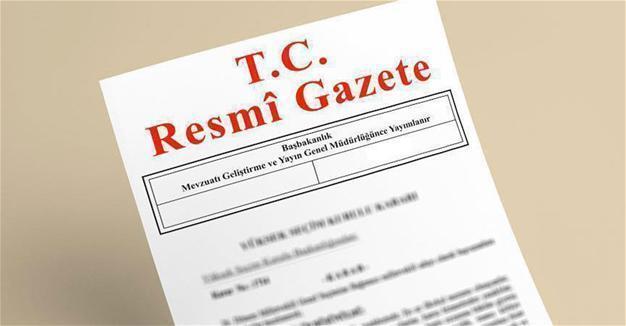President given power to directly appoint rectors to universities in Turkey
ANKARA

President Recep Tayyip Erdoğan will be able to appoint rectors to universities directly without having to consider the preferences of academics following the imposition of the latest state of emergency decree on Oct. 29.
The regulation brings an end to the practice introduced in 1992, which states that rector candidates are elected by the academics at the universities in question before being presented to the president, who can either accept the recommendation or choose another scholar as rector.
The authority to directly appoint rectors was part of an omnibus bill that the ruling Justice and Development Party (AKP) sought to pass after the attempted July 15 coup, widely believed to have been masterminded by followers of the U.S.-based Islamic preacher Fethullah Gülen, but was retracted after the opposition parties fought against it.
With the new regulation, the president will choose from three rector candidates determined by Turkey’s Higher Education Board (YÖK) for state universities. However, the president will be able to appoint a rector directly if he does not select one of those presented by YÖK within a month and the body does not present a new candidate. The rectors will be able to work for a maximum of two terms in state universities.
In addition, with the new state of emergency decree, Turkish authorities have dismissed a total of 10,131 civil servants over suspected links to Gülenists and other groups.
Thousands of academics, teachers and health workers were among those removed through the new decree, while 15 media outlets, all of which focused on the southeast or socialist causes, were shut down.
According to the decree, members of “terrorist organizations or groups involved in activities against the country’s national security or those in contact with terrorist organizations or groups” have been dismissed.
Some 32 officials from the parliament, 183 from the Court of Cassation, 249 from the Directorate of Religious Affairs, 2,534 from the Justice Ministry, 102 from the Foreign Ministry, 2,219 from the Education Ministry, 2,774 from the Health Ministry and 101 from the Turkish Armed Forces were also removed from their positions. A total of 1,267 academics were also dismissed with the new decree, including many from prestigious universities.
A total of 1,082 police officers, including former, retired and dismissed have been stripped of their ranks by the decree due to their alleged links to the Gülenists. Their respective gun licenses, retired police identification cards, pilot licenses and ship crew documents and passports were also canceled. The officers will not be assigned again to the civil service, and they cannot benefit from rights that come with their ranks. The also cannot establish a private security firm or partner or be employed by a private security firm.
Fifteen media outlets, including Dicle News Agency; Azadiya Welat, Jin News Agency, Evrensel Kültür Magazine and many newspapers and magazines were closed by the decree over their alleged links to the outlawed Kurdistan Workers’ Party (PKK). In total, two news agencies, 10 newspapers and three magazines were shut down with the new degree.
Separately, the permanent press cards of journalists Hasan Cemal and Doğan Akın were canceled, the Directorate General of Press and Information of the Prime Ministry said on its website.
Meanwhile, a restriction has been introduced against those who have been charged over terrorism, coup plotting or any crime against the state. The aforementioned convicts’ meetings with their lawyers will be listened to and recorded. Authorities will be able to seize documents used in the meetings between the convict and the lawyer, will be able to end the meetings immediately and will also be able to limit the days or hours of the meetings. These restrictions will be ended upon a decision by judges. The Chief Public Prosecutor’s Office will also be able to ban meetings for six months.
Additionally, convicts charged with the aforementioned crimes will be able to bring three lawyers to the hearings at most. The hearings will continue even if the lawyers of the convicts leave the court room without stating a reason, the emergency decree states.
A small number of people also returned to their post as part of the new decree, with 39 soldiers, including two generals, three parliament personnel, 31 Education Ministry personnel and one Disaster and Emergency Management Authority (AFAD) staff member returning to their posts.
Changes were also introduced to the practices of the Defense Ministry. The new state of emergency decree paves the way for all graduates of engineering faculties to become pilots in the Air Force, which comes amid a shortage in the number of pilots in the army due to dismissals after the failed coup attempt.
Separately, the decree said those who were injured during the July 15 coup attempt would receive the title of war veteran.
 President Recep Tayyip Erdoğan will be able to appoint rectors to universities directly without having to consider the preferences of academics following the imposition of the latest state of emergency decree on Oct. 29.
President Recep Tayyip Erdoğan will be able to appoint rectors to universities directly without having to consider the preferences of academics following the imposition of the latest state of emergency decree on Oct. 29.